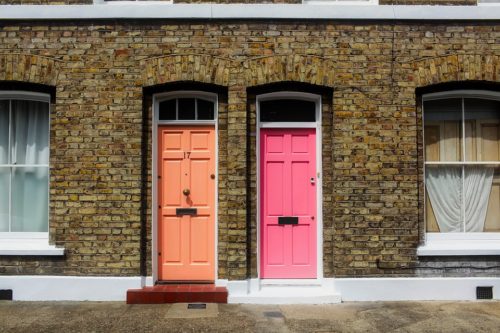When you’re finding a place to live, there are two primary options: buying and renting. Choosing between the two can have a big impact on your financial situation, and you shouldn’t make the decision lightly. Both options have their pros and cons, so when looking to move, it’s essential for you to weigh your choices.
Especially for younger people who are considering buying a home for the first time, understanding how to tell if you are ready to buy or when buying a house isn’t worth it can have a tremendous impact on your future. To help you out, here are some points to consider before you make a commitment.
Table of Contents
Buying vs. Renting a Home
Many think that renting and buying are different simply because one proves ownership. There are many other key differences to consider between the two — these include:
- Equity: When you purchase a home, the property value generally appreciates, and you gain equity;
- Tax implications: When you own a home, you have more tax implications to consider;
- Liabilities: When you rent a home, the homeowner has the majority of the responsibilities for the house. If you own your home, you are responsible for the upkeep and anything that goes into maintaining a home.
Renting vs. Buying: Pros and Cons
There are various pluses and minuses associated with each home option. Although a pro for one individual may be a con to another individual, understanding the benefits and downfalls of renting vs. buying can help make your decision easier.
Pros of Renting a Home
When you rent, you have a place to call your own without taking ownership of the property. There are options to rent-to-own, but that is different than traditional landlord-tenant rental relationships.
When you rent, you are less liable for the place you occupy. You are not responsible for most of the upkeep and repairs — unless your lease states otherwise, or you caused the damages. As a renter, you avoid any large closing costs, and you’re able to temporarily test out living quarters to help you understand what you want in a home long term.
Cons of Renting a Home
When you rent, you have less creative freedom. If you want to make a fire pit in the back yard or paint your room another color, you will need to look over your lease or get a hold of your landlord for permission. You are making payments and aren’t gaining any equity or ownership in the home. Since someone else owns the property, as time goes on the rent prices can go up, or the landlord can choose to sell or stop renting the property.
Pros of Buying a Home
When you purchase a home, you are gaining equity every time you make a mortgage payment. More often than not, houses increase in value, so purchasing a home is a great investment. Buying a home gives homeowners the ability to take advantage of property tax deductions. When you purchase a home, you can take creative freedom. If you want to paint the whole house or plant flowers throughout the backyard, you can do it. When you purchase a home, you create a sense of permanence and stability.
Cons of Buying a Home
When you buy a home, you are responsible for every aspect of it. Although homeowner’s insurance may cover the costs of repairs, there are certain scenarios where you may need to pay out of pocket in the spur of the moment (e.g. fixing a pipe, roof leak/collapse) and you will have to wait for reimbursement.
Property taxes fluctuate, so a new year may be entirely different than what you were planning on based on the previous year. Home values can decrease in some cases. When you buy a home, closing costs can be very expensive or limiting.
Considerations for Renting vs. Owning a Home
Whether renting or owning a home is the right choice for you depends almost entirely on your personal situation. Below are various questions and considerations you should consider prior to making a decision to rent or buy:
- How long are you planning on staying in the area?
- What does the housing market look like in the area?
- How much of a down payment can you put down on a house?
- How many things would you need to purchase to be able to maintain a home?
- Does your job — or your spouse’s occupation — require mobility?
- Do you have an emergency fund in place?
- How much debt do you have and what is your credit like?
- Can you take on additional payments associated with a house?
In most cases, if you can afford to purchase a home, you will want to purely based on building equity, but even if you can purchase a home, renting may be more of a viable option for you personally. Consider the questions above — as well as others that may come up — to help determine if renting or owning is the right choice for you and your plan.
Image source: https://pixabay.com/





